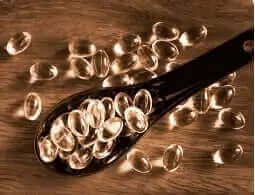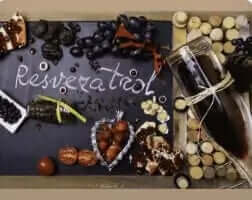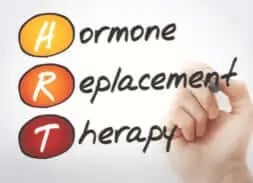Resveratrol Side Effects and Benefits: Everything You Need to Know About This Powerful Supplement
Resveratrol has captured the attention of health enthusiasts and researchers worldwide as a promising supplement with remarkable potential. This comprehensive guide explores both the benefits and possible side effects of resveratrol supplementation, helping you make informed decisions about incorporating this powerful compound into your wellness routine. Whether you're seeking anti-aging benefits, improved heart health, or enhanced overall vitality, understanding resveratrol's effects on your body is crucial for optimal results.
Understanding Resveratrol: Nature's Gift for Health and Longevity
Found naturally in red grape skins, berries, and certain nuts, resveratrol belongs to a group of compounds called polyphenols. These powerful antioxidants protect plants from stress and injury, and research suggests they may offer similar protective benefits to humans. The supplement form of resveratrol concentrates these beneficial compounds, delivering doses that would be impossible to obtain through diet alone.
The journey of resveratrol from laboratory discovery to popular supplement mirrors many breakthrough health discoveries. Just as medications like Viagra found unexpected applications beyond their original purpose, resveratrol continues to reveal new potential benefits as research progresses. This adaptability and versatility make resveratrol particularly exciting for those seeking natural ways to support their health.
The Science Behind Resveratrol Benefits
Scientific studies have illuminated numerous potential benefits of resveratrol supplementation. Research conducted on both animal models and human subjects reveals promising applications for this remarkable compound:
1. Anti-Aging Properties
Laboratory studies have shown that resveratrol can extend lifespan in various organisms, including yeast, worms, and fruit flies. Italian researchers discovered that certain fish species experienced increased longevity when given resveratrol supplements. While human studies are still developing, the cellular mechanisms suggest similar potential for supporting healthy aging in people.
2. Heart Health Support
Multiple studies indicate that resveratrol may promote cardiovascular wellness by supporting healthy blood flow and protecting blood vessels from oxidative stress. The compound's ability to support healthy cholesterol levels and blood pressure makes it valuable for those focused on maintaining heart health.
3. Blood Sugar Management
Research suggests that resveratrol doses between 300-500 milligrams may help maintain healthy blood sugar levels. This effect becomes particularly pronounced when the supplement's bioavailability is enhanced through proper formulation and manufacturing processes.
4. Cancer Prevention Research
Extensive animal studies have demonstrated resveratrol's potential in fighting various types of cancer cells. While human trials are ongoing, the preliminary results show promise for this compound as part of a comprehensive health strategy.
Common Resveratrol Side Effects: What to Expect
While resveratrol is generally well-tolerated, some users may experience certain effects when beginning supplementation. Understanding these potential responses helps you optimize your experience:
Frequently Reported Effects
- Digestive Changes: Some users experience mild stomach discomfort or loose stools, particularly with lower-quality supplements containing less than 50% pure resveratrol. Choosing high-purity formulations (98-99%) significantly reduces these occurrences.
- Appetite Modulation: Many people notice reduced hunger, which some view as beneficial for weight management goals while others may find challenging.
- Energy Sensations: A small percentage of users report feeling energized or experiencing a mild stimulant effect shortly after taking resveratrol.
Less Common Experiences
- Tingling Sensations: Some individuals notice temporary pins and needles in their extremities, typically lasting only minutes and diminishing after several days of consistent use.
- Skin Changes: Rare reports mention unusual skin patches, particularly on the legs, though these instances are uncommon.
Rare Side Effects (High Doses)
- Joint Discomfort: At doses exceeding 2 grams daily, some users report joint pain or arthritis-like symptoms.
- Tendon Sensitivity: Extremely rare cases involve tendinitis, primarily in the Achilles tendon, associated with very high doses.
Optimal Dosing Strategies for Resveratrol
Finding your ideal resveratrol dosage involves balancing effectiveness with comfort. Research provides these insights:
Standard Dosing Guidelines
Most studies showing positive effects use doses between 150-500 milligrams daily. Starting with a lower dose allows your body to adjust gradually, minimizing any potential side effects while still providing benefits.
High-Dose Considerations
A 2010 study found that subjects taking 4 grams (4000 mg) daily tolerated the supplement well, though 75% experienced digestive changes. This reinforces the importance of finding your personal sweet spot for dosing.
Bioavailability Enhancement
The effectiveness of resveratrol supplements depends significantly on bioavailability. Taking resveratrol with healthy fats or choosing formulations designed for enhanced absorption can dramatically improve results while potentially reducing the required dose.
Choosing High-Quality Resveratrol Supplements
The quality of your resveratrol supplement directly impacts both its effectiveness and your likelihood of experiencing side effects. Here's what to look for:
Purity Matters
Select supplements with 98% or 99% pure trans-resveratrol. Lower purity products often contain fillers or contaminants that increase the risk of digestive upset and reduce effectiveness.
Manufacturing Standards
Choose brands that follow Good Manufacturing Practices (GMP) and provide third-party testing results. This ensures consistency and safety in every batch.
Formulation Considerations
Some resveratrol supplements include complementary ingredients like quercetin or piperine to enhance absorption. These combinations can provide superior results compared to resveratrol alone.
Natural Sources vs. Supplementation
While red wine famously contains resveratrol, obtaining therapeutic doses through dietary sources alone proves impractical. Consider these comparisons:
Red Wine Reality
To consume 300 milligrams of resveratrol through red wine, you would need to drink hundreds of glasses daily - clearly an impossible and unhealthy approach. This stark reality highlights why concentrated supplements offer the only practical way to achieve beneficial resveratrol levels.
Food Sources
Other natural sources include:
- Red and purple grapes (especially the skin)
- Blueberries and cranberries
- Peanuts and pistachios
- Dark chocolate (in small amounts)
While these foods provide some resveratrol along with other beneficial nutrients, supplementation remains necessary for therapeutic doses.
Special Considerations and Precautions
Certain individuals should exercise extra caution with resveratrol supplementation:
Hormone-Sensitive Conditions
Due to resveratrol's structural similarity to phytoestrogens, those with hormone-sensitive conditions should consult healthcare providers before use. While no documented cases link resveratrol to increased cancer risk, professional guidance ensures safety.
Medication Interactions
Resveratrol may interact with blood thinners, NSAIDs, and certain other medications. Always discuss supplementation with your healthcare provider if you take prescription medications.
Pregnancy and Nursing
Limited research exists on resveratrol use during pregnancy or breastfeeding. Err on the side of caution and avoid supplementation during these times unless specifically recommended by your healthcare provider.
Maximizing Your Resveratrol Experience
Transform your resveratrol supplementation into a positive, life-enhancing practice with these strategies:
Start Slowly
Begin with a lower dose (150-250 mg) and gradually increase as your body adapts. This approach minimizes potential side effects while allowing you to find your optimal dosage.
Timing Matters
Take resveratrol with meals containing healthy fats to enhance absorption and reduce any potential stomach discomfort. Many users find morning dosing provides the best results.
Track Your Progress
Keep a journal noting energy levels, mood, and any physical changes. This personal data helps you optimize your supplementation routine for maximum benefit.
Combine with Healthy Habits
Resveratrol works best as part of a comprehensive wellness approach. Combine supplementation with regular exercise, balanced nutrition, and stress management for synergistic benefits.
The Future of Resveratrol Research
As scientific understanding of resveratrol continues to evolve, new applications and benefits emerge regularly. Current research focuses on:
- Enhancing bioavailability through novel delivery systems
- Exploring synergistic combinations with other supplements
- Investigating specific health conditions that may benefit from resveratrol
- Understanding genetic factors that influence individual responses
This ongoing research promises to unlock even more potential from this remarkable compound, offering hope for those seeking natural health solutions.
Making an Informed Decision About Resveratrol
The decision to incorporate resveratrol into your health routine becomes clearer when you weigh the extensive potential benefits against the generally mild and manageable side effects. Most users find that any initial adjustment period quickly gives way to noticeable improvements in energy, vitality, and overall well-being.
Remember that supplements work differently for each individual. What proves transformative for one person may produce subtle effects in another. This variability makes personal experimentation, guided by knowledge and professional advice when needed, the key to success.
By choosing high-quality resveratrol supplements, starting with appropriate doses, and maintaining realistic expectations, you position yourself to experience the remarkable benefits this compound offers. The journey toward better health through resveratrol supplementation represents an investment in your future vitality and longevity.
Frequently Asked Questions About Resveratrol
How long does it take to see results from resveratrol supplementation?
Most users begin noticing subtle changes within 2-4 weeks of consistent resveratrol supplementation. Energy improvements often appear first, followed by other benefits like better sleep quality and enhanced mental clarity. For significant health markers like blood sugar or cholesterol levels, allow 8-12 weeks of regular use. Remember that individual responses vary based on factors like dosage, supplement quality, and your overall health status. Patience and consistency yield the best results with this powerful antioxidant.
Can I take resveratrol with other supplements?
Yes, resveratrol generally pairs well with other supplements and may even enhance their effectiveness. Popular combinations include resveratrol with quercetin for enhanced antioxidant protection, omega-3 fatty acids for cardiovascular support, and vitamin D for immune system benefits. Some formulations include piperine (black pepper extract) to improve resveratrol absorption. However, avoid taking resveratrol with blood-thinning supplements like high-dose vitamin E or ginkgo biloba without medical supervision. Always space out your supplements throughout the day for optimal absorption.
What's the best time of day to take resveratrol?
The optimal timing for resveratrol supplementation depends on your individual response and goals. Many users prefer morning doses with breakfast, as this can provide sustained energy throughout the day and aligns with the body's natural circadian rhythms. Taking resveratrol with a meal containing healthy fats enhances absorption and minimizes any potential stomach discomfort. Some people split their dose between morning and early afternoon. Avoid late evening doses if you experience the energizing effects, as this might interfere with sleep quality.
Is resveratrol safe for long-term use?
Current research suggests that resveratrol is safe for long-term use when taken at recommended doses (typically 150-500 mg daily). Studies spanning several months to years have shown no significant adverse effects in most participants. The compound's natural occurrence in foods consumed for centuries provides additional reassurance. However, since resveratrol is a relatively new supplement, decades-long studies are still ongoing. Regular health check-ups and open communication with your healthcare provider ensure continued safety, especially if you have pre-existing conditions or take medications.
How do I know if my resveratrol supplement is high quality?
High-quality resveratrol supplements display several key characteristics: Look for 98-99% pure trans-resveratrol on the label, third-party testing certificates, and GMP (Good Manufacturing Practices) certification. Reputable brands provide detailed information about sourcing and extraction methods. The supplement should be packaged in dark bottles to protect from light degradation. Avoid products with unnecessary fillers, artificial colors, or preservatives. Price can be an indicator - extremely cheap resveratrol often indicates lower purity or quality. Research the manufacturer's reputation and read verified customer reviews for additional confidence.
Can resveratrol help with weight loss?
Resveratrol may support healthy weight management through several mechanisms. Many users report decreased appetite, which naturally leads to reduced calorie intake. Research suggests resveratrol may enhance metabolism, improve insulin sensitivity, and promote the conversion of white fat to metabolically active brown fat. While not a magic weight loss pill, resveratrol works synergistically with healthy diet and exercise habits to optimize body composition. The energy boost many experience can also motivate increased physical activity, further supporting weight management goals.
Are there any age restrictions for taking resveratrol?
Resveratrol supplementation is generally recommended for adults over 18 years old. While the compound occurs naturally in foods safely consumed by children, concentrated supplements haven't been extensively studied in pediatric populations. Adults of all ages can potentially benefit, with many people in their 40s, 50s, and beyond finding particular value in resveratrol's anti-aging properties. Elderly individuals should start with lower doses and may want to discuss supplementation with their healthcare provider, especially if managing multiple health conditions or medications. The key is matching the supplement approach to individual health needs and goals.
What's the difference between resveratrol and trans-resveratrol?
Trans-resveratrol is the bioactive form of resveratrol that provides health benefits. When you see "resveratrol" on supplement labels, it should specify "trans-resveratrol" for maximum effectiveness. The "trans" designation refers to the molecular structure that allows proper absorption and utilization by your body. Cis-resveratrol, the other form, has limited bioavailability and fewer proven benefits. Quality supplements contain 98-99% pure trans-resveratrol. Always check labels carefully - some products may contain resveratrol blends with lower percentages of the active trans form, reducing their potential effectiveness.
Can diabetics safely take resveratrol?
Research suggests that resveratrol may offer particular benefits for people managing diabetes, as studies show it can help support healthy blood sugar levels and improve insulin sensitivity. However, because resveratrol can affect blood glucose, diabetics should consult their healthcare provider before starting supplementation. Start with a low dose and monitor blood sugar levels closely, as medication adjustments might be necessary. Many diabetics find that resveratrol, combined with proper diet and exercise, provides valuable support for their overall health management strategy. The key is working with your medical team to integrate resveratrol safely into your treatment plan.
How should I store my resveratrol supplements?
Proper storage ensures your resveratrol supplements maintain potency throughout their shelf life. Store bottles in a cool, dry place away from direct sunlight and heat sources. A pantry or medicine cabinet works well - avoid bathroom storage due to humidity fluctuations. Keep the bottle tightly sealed when not in use to prevent moisture exposure. Some high-quality resveratrol supplements come in dark amber or opaque bottles for light protection. Don't transfer supplements to other containers, as this can compromise quality. Check expiration dates regularly and replace supplements as needed to ensure maximum effectiveness and safety.
References:
- https://cancerci.biomedcentral.com/articles/10.1186/s12935-021-02280-5
- https://www.sciencedirect.com/science/article/pii/S0753332219353892
- https://www.sciencedirect.com/science/article/abs/pii/S1383571822000043







